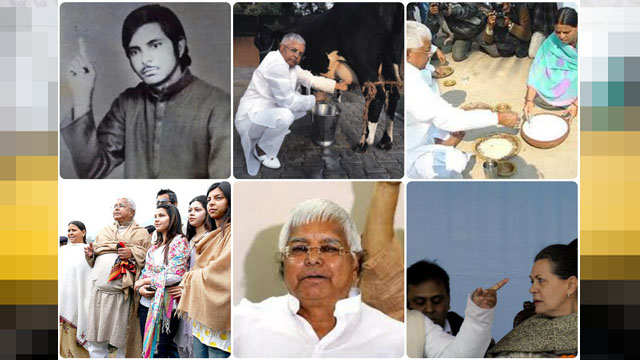Lalu Prasad was desperately trying to claw back into reckoning in Bihar after the rise of Nitish Kumar when he faces the prospect of going back to prison, his head hung in shame.
He milked cows at his official residence, dressed only in his undergarments. He was photographed eating rotis being baked by his wife in the kitchen. He was a maverick, a jester, a crowd puller par excellence. Lalu Prasad turned Bihar’s politics – and economic health – upside down as he catapulted from a student leader of the 1970s to be one of India’s best-known politicians before his downfall Monday.
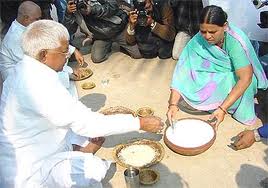
Few regional politicians enjoyed the kind of pan-India appeal as Lalu Prasad, who was born into a farmers’ family in June 1948. His first electoral victory in 1977, when he entered parliament at age 29, marked the start of an eventful career that just 13 years later made him Bihar’s chief minister and, still later, a much admired railway minister. But what made him a household name was his dramatic arrest of then BJP star L.K. Advani when his ‘Rath’ rolled into Bihar in 1990. By 2003, such was his popularity that when Lalu Pradad visited a vegetable market in Islamabad, Pakistanis — of all ages – virtually mobbed him.
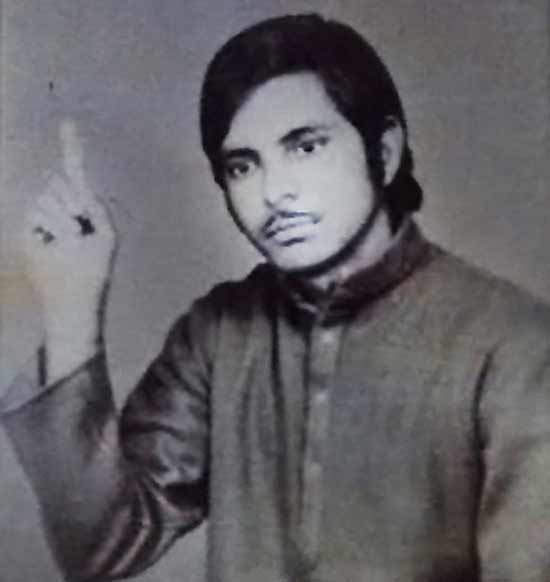
With his rustic looks, ready wit and earthy attitude to events and people, Lalu Prasad quickly outgrew many of his contemporaries from his student days in Patna. One reason was his very vocal style, his pet hate being the Bharatiya Janata Party (BJP) and Hindutva politics. When Sonia Gandhi came under attack on her foreign origin after taking to politics, Lalu Prasad was among her greatest supporters – and remained so year after year.
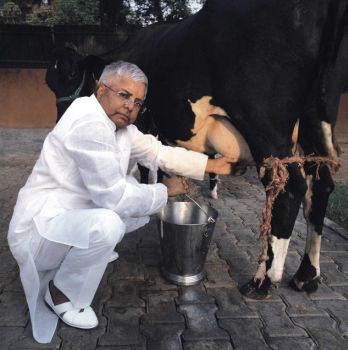
Jokes were aplenty on and about Lalu, as he was widely addressed. He regaled audiences on how he could turn Japan into a Bihar – after a Japanese promised to transform Bihar into a Japan. He promised to make Bihar’s roads as “chikna” (smooth) as actress Hema Malini’s cheeks. As he grew and grew, he vowed never to fade away in politics with a self-made quote that became as famous as the man: “Jab tak rahega samosa main aloo, tab tak rahega Bihar main Lalu!” Such were his theatrics that actor Shatrughan Sinha remarked that had Lalu Prasad not been a politician, he would have been a successful actor in Bollywood.
It may well have been true.
After a mostly low-key existence in the Lok Sabha from 1977 to 1980, Lalu Prasad was elected twice to the Bihar assembly, becoming the opposition leader in 1989. Coinciding with the decline of the Congress across the northern belt, Lalu Prasad became the chief minister of Bihar, one of India’s most backward states, in 1990. His caste-laced politics came to be recognized as “social engineering”.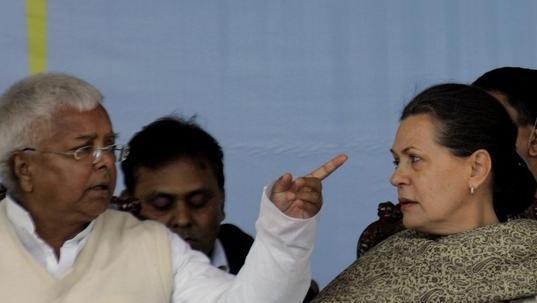
He was to hold the post for seven years, a period when Lalu Prasad turned into a political giant of sorts, first by arresting Advani and then by building a solid Yadav-Muslim support base in the 1990s amid the divisive Ayodhya politics. His stature expanded beyond Bihar, and so did his ambition, leading him to walk away from the Janata Dal in 1997 and form the Rashtriya Janata Dal (RJD).
Lalu Prasad returned to the Lok Sabha in 1998. By then, he had allied with the Congress, a party he once loathed. His RJD became a key member of the Congress-led UPA alliance in 2004. Lalu Prasad was named the high profile railway minister. It was a period when he surprised friends and foes alike by turning around the loss making Indian Railways into a profitable venture, earning the admiration of business schools in India and abroad. Lalu Prasad replaced paper cups with ‘kullads’ to serve tea to millions of passengers. He once travelled on a train at midnight to know how the railways were faring.
By then, Lalu Prasad was battling, for some years, what came to be known as the “fodder scam” – which proved to be his nemesis. Critics accused him – and his wife Rabri Devi, who succeeded him as the Bihar chief minister after Lalu Prasad was first sent to jail in the scam – of virtually destroying the state and turning it into a de facto ‘jungle Raj’. Lalu Prasad’s use of an Osama look alike in the 2005 Bihar election to woo Muslims did not win him many friends.
“For the period he ruled Bihar, he was the king of the state,” Nisar ul Haq, a professor of political science at the Jamia Milia told IANS. But kings don’t rule forever. Lalu Prasad was desperately trying to claw back into reckoning in Bihar after the rise of Nitish Kumar when he faces the prospect of going back to prison, his head hung in shame.
IANS

